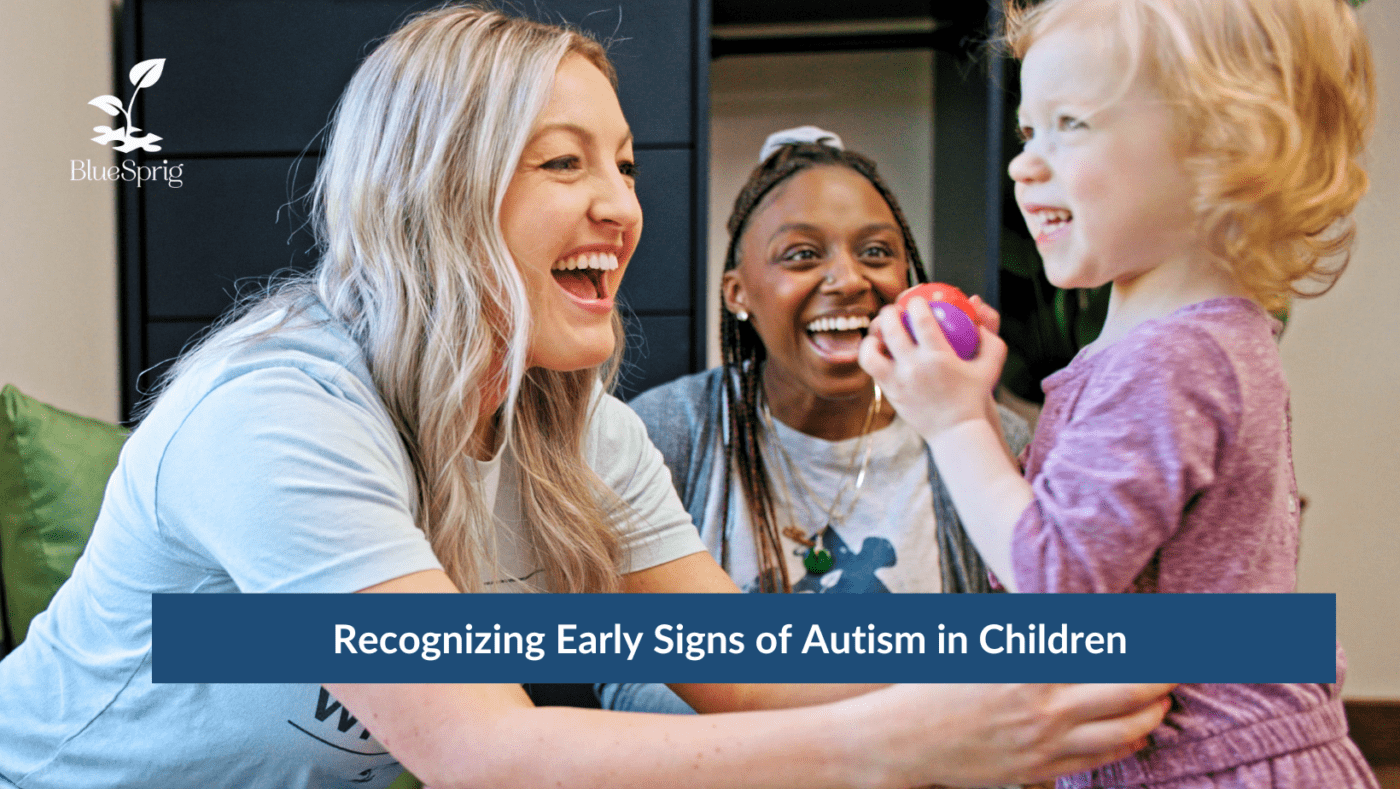As a parent, it is natural to wonder and worry about the growth and development of your child. One of the common questions among parents is the signs of autism spectrum disorder (ASD). ASD is a broad term to describe a neurodevelopmental condition characterized by social communication issues and repetitive or restricted behavior. Autism is a spectrum disorder which means that it affects people differently and to varying degrees. As such, the signs of autism can look different for each child.
In this blog, we will discuss some of the more common early signs of autism that parents can look out for. By recognizing these signs, parents can take early action and help their child get the support they need.
May not respond to their name by 12 months of age.
An early sign of autism can be a lack of communication and the ability to interact when their name is said. A child may respond to their name inconsistently or not at all. The first step in determining if a child has ASD instead of a hearing disability is to visit an audiologist.
May have a lack of social-emotional reciprocity.
Children with autism may struggle to have a back-and-forth conversation with their peers or family members. Instead of being able to interpret how another person is feeling during an interaction, this individual might be unaware of their surroundings and social cues being portrayed by the other person.
May avoid eye contact and want to be alone.
In some cases, struggling to read social cues can coincide with avoiding eye contact and self-isolation. Making eye contact with another individual can cause a child with autism to become overstimulated, which results in little to no eye contact.
Research shows that 40-50% of people with autism suffer from anxiety. Being surrounded by others can cause this anxiety to rise and, in return, cause the person with autism to become avoidant from social interactions.
May have delayed speech and language skills.
Children with autism may show a lack of interest in connecting with their peers. Due to this, their speech and language skills could be delayed for the first 12 months of the child’s life. Some might find it difficult to understand rhythms and the meanings of different words; others find that their child has a large vocabulary, but creating sentences is a roadblock.
May have obsessive interests or unusual reactions.
Fixating on an interest can be a way for children with autism to cope with their anxiety, generate acknowledgment of their surroundings and help calm them down when they are feeling strong emotions. If a child has certain hobbies or skills that they repeat, this may be a sign that the child has autism. This may also look like a child perseverating on topics they find intriguing.
What to do if your child is showing these signs?
If you suspect your child may have autism, speak to your pediatrician about any concerns. Most pediatricians will use screening tools such as the Ages and Stages Questionnaire (ASQ) or the Modified Checklist for Autism in Toddlers (M-CHAT) to determine if autism is indicated.
You can also check out the CDC developmental milestones area to gain more knowledge on autism and the early signs that are shown in children with autism.
How BlueSprig can help
The most notable behavioral intervention for individuals with ASD is applied behavior analysis (ABA). ABA is a therapy built around the process of behavior change using reinforcement increase and decrease targeted behavior while improving strategies to both increase and decrease targeted behavior while working to improve socialization, communication, learning skills, and other developmental milestones. BlueSprig is the premier provider of ABA treatment, offering individualized programs geared toward young children with ASD in 140+ locations throughout the country.
To learn more about ABA treatment options for your family and to get started, visit bluesprigautism.com/locations.
